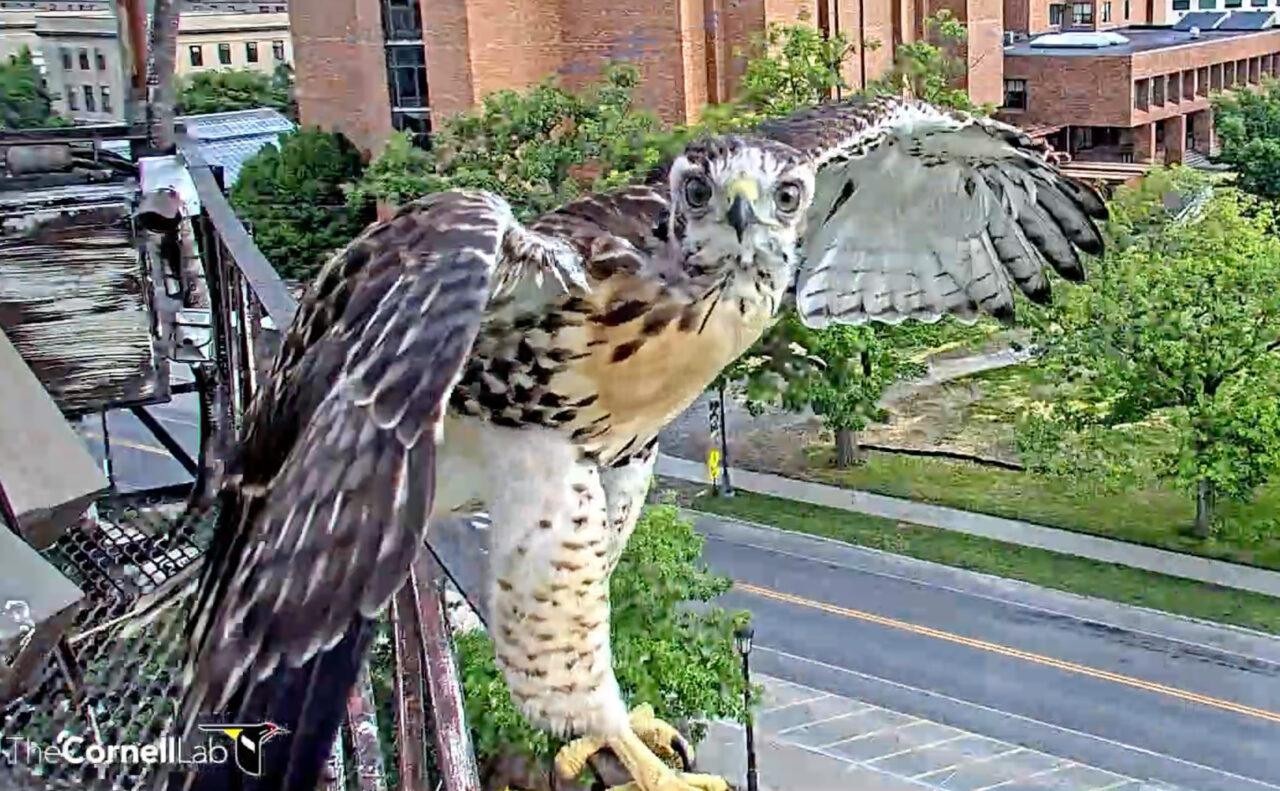Red-tailed Hawk Fledgling—Likely “M2″—Found Deceased On Campus
August 1, 2023
We are saddened to share that a deceased juvenile Red-tailed Hawk was discovered on Cornell University’s campus on August 1. Contractors working on the roof of Bartels Hall notified Cornell Lab of Ornithology staff of a dead hawk in the bushes on the Campus Road side of the building. Based on the location, plumage characteristics, and continued recent sightings of fledglings M1 and M3, the deceased bird is likely to be fledgling M2 from the 2023 Cornell Hawks Cam nest.
The location of the bird beneath a window suggests that the fledgling probably had a fatal collision with the building, and the deteriorated condition of the remains suggests that the event occurred at least several days prior to when the hawk was found.
This apparent collision is a difficult reminder that windows are a deadly hazard for hawks and other birds. Window collisions are estimated to kill up to 1 billion birds per year in the United States alone, and young birds are at an even greater risk as they learn to fly. In past breeding seasons, several young Red-tailed Hawks have succumbed to collision-induced injuries and fatalities while exploring their campus territory in the weeks after fledging.
Each loss is deeply saddening for our hawk cam community and beyond. The Cornell Lab of Ornithology, Cornell campus facilities, and devoted observers that follow our Red-tailed Hawk family have worked diligently to make Cornell University a safer place for birds over the years by reducing hazards on campus.
Special efforts have been made to identify and remediate the glass of bus shelters near the nest on Tower Road, and this year the Cornell Lab and American Bird Conservancy teamed up with Cornell University students and a generous donor to launch the “Cornell Bird Friendly Campus Initiative.” As a result, Stocking Hall added Acopian BirdSavers to windows to make them safer for hawks and other birds, and discussions are underway at additional locations. M2’s death will provide documentation and impetus to continue raising awareness and making windows safer on campus.
For more information about how you can help prevent collisions in your area, please visit the American Bird Conservancy’s glass collisions website.

Bird Cams is a free resource
providing a virtual window into the natural world
of birds and funded by donors like you
Pileated Woodpecker by Lin McGrew / Macaulay Library